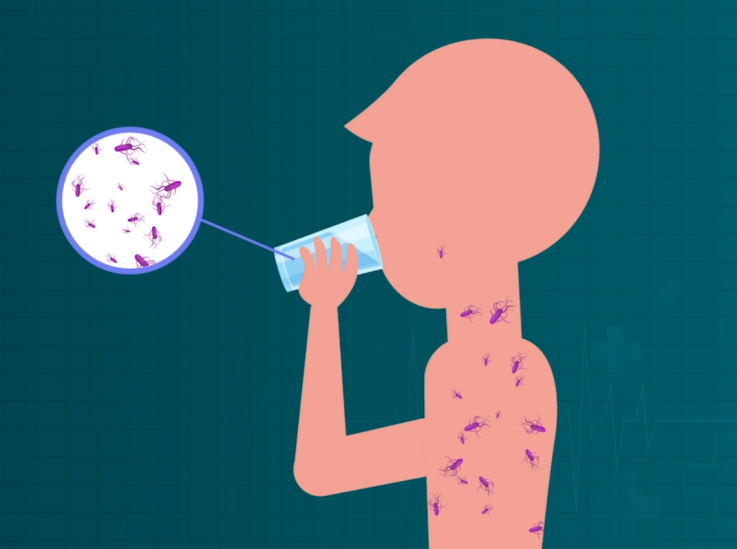What is Travelers’ diarrhea?
It is the gastrointestinal infection occurring in the travelers within 10 days of travel as a result of
virus, bacteria or parasites. It particularly occurs if someone has travelled to an area with poor hygiene
and sanitation.
Travelers’ diarrhea is the most common and most predictable illness among the travelers.
How do I get traveler’s diarrhea?
- It is acquired by eating food or drinking water containing any bacteria, virus or parasites. The
- water and food is contaminated and ingested due to one of the following reasons:
- No proper had hygiene is maintained (hand washing/use of sanitizer)
- Drinking unsterilized/unpurified water or water of unknown source (contaminated) or
- beverages.
- Tap water and ground water in Nepal are all assumed contaminated!
- Eating unsafe street food or food not properly stored and handled in buffet restaurants
- Eating raw, uncooked, unwashed vegetables and fruits
- Eating improperly handled meat, poultry products, dairy products, etc
What are the symptoms of travelers’ diarrhea?
Sudden onset (within 10 days of travel) of bothersome symptoms that ranges from mild to severe symptoms as follows:
- Loose stools
- Abdominal cramps
- Nausea/Vomiting
- Fever
- Blood in stools
- Bloating
- Lethargy
- Tiredness
- Dizziness and sweating
Symptoms lasts based on the origin of the diarrhea. Viral diarrhea usually lasts 2-3 days, bacterial diarrhea lasts 5-7 days and parasitic diarrhea persists for weeks to even months without treatment.
How do I treat travelers’ diarrhea?
Milder form of disease can be treated at home/hotels by replacing the fluids (preferably WHO
standard ORS) and with supportive care.
Severe form of disease need in-hospital management with intravenous fluids, antibiotics and
necessary supportive care.
What can be done to prevent travelers’ diarrhea?
The classic golden rule is “Cook it, Boil it, Peel it or Forget it”. You have to be cautious with not just
what you eat but where you eat as well. Following measures can be taken to minimize the chances
of not getting diarrhea:
- Following proper hand hygiene
- Avoid restaurants and pubs/bars that looks unclean and you are not confident about the
- hygiene
- Avoid using unpurified water. Say NO to tap/ground/unbottled water in Nepal. Even “Jar
- water” are not always purified as per the standards.
- Never eat street foods
- Always wash your fruits and vegetables with clean water or peel it
- Don’t eat green salads and raw vegetables.
- Don’t put regular ice in your drinks at bars/pubs/restaurants
- Don’t eat food from unknown sources
- Don’t always get your mouth in direct contact with utensils. Use straws instead of directly
- drinking from glass.
When do I seek medical attention?
It is very important to look for medical attention if you have any of the signs/symptoms as
follows:
- Bloody diarrhea
- FeverSevere abdominal pain
- Signs of dehydration (dry mouth, sunken eyes, dry tongue, decreased urine formation)
- You are not getting better in a couple of days
- You are not sure if your home remedies is helping you and
- You have significant past medical problems
Don’t just go to any hospitals you see. Travel clinics with doctors experienced in handling travelers is
required. Diarrhea in local population is different to travelers’ diarrhea so, there are chances you won’t
get proper care and updated treatment. So, always visit the travel clinic or doctors experienced in travel
medicine.
ALWAYS REMEMBER “COOK IT, BOIL IT, PEEL IT OR FORGET IT”
Dr. Santosh Baniya, MD (April, 2022)

